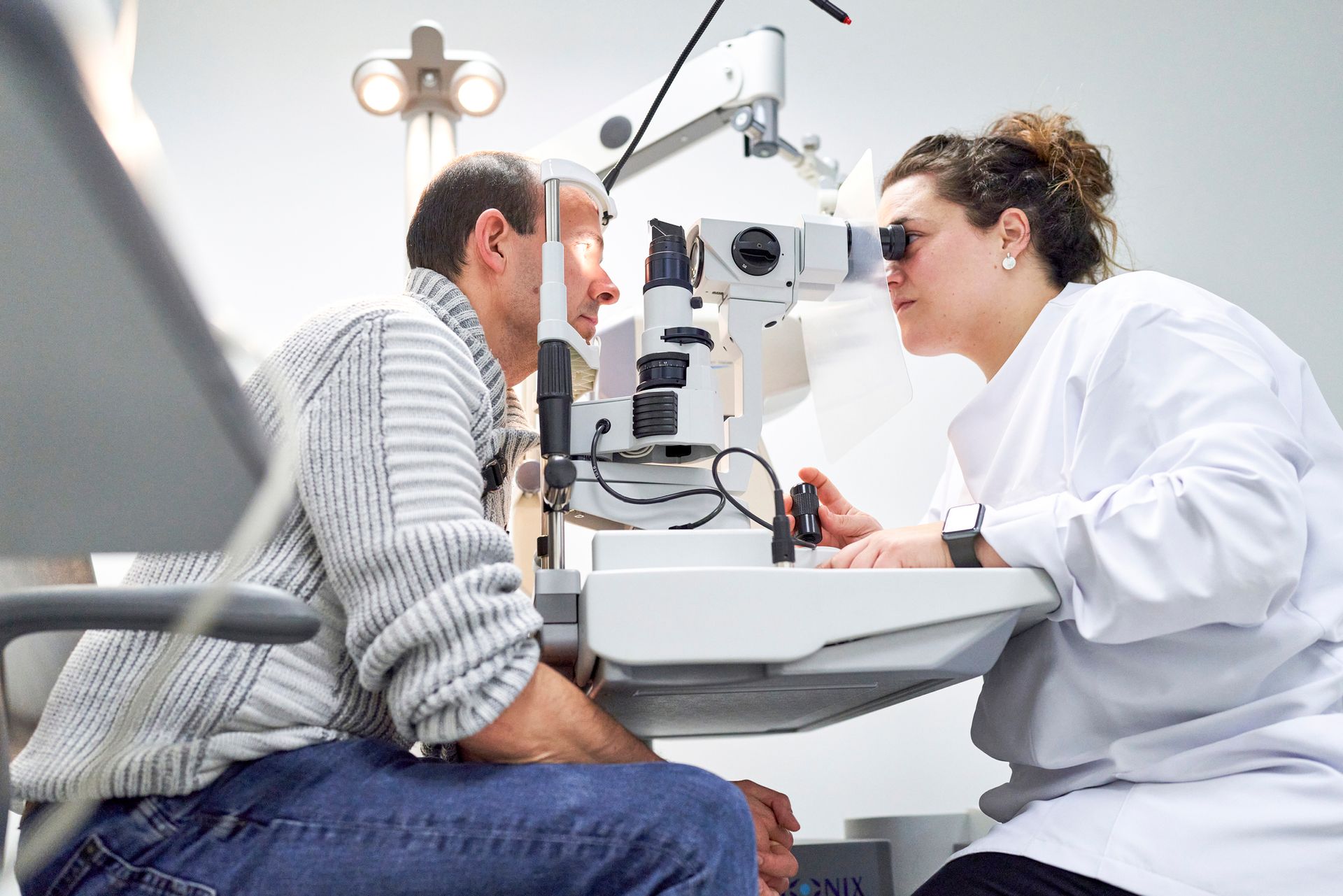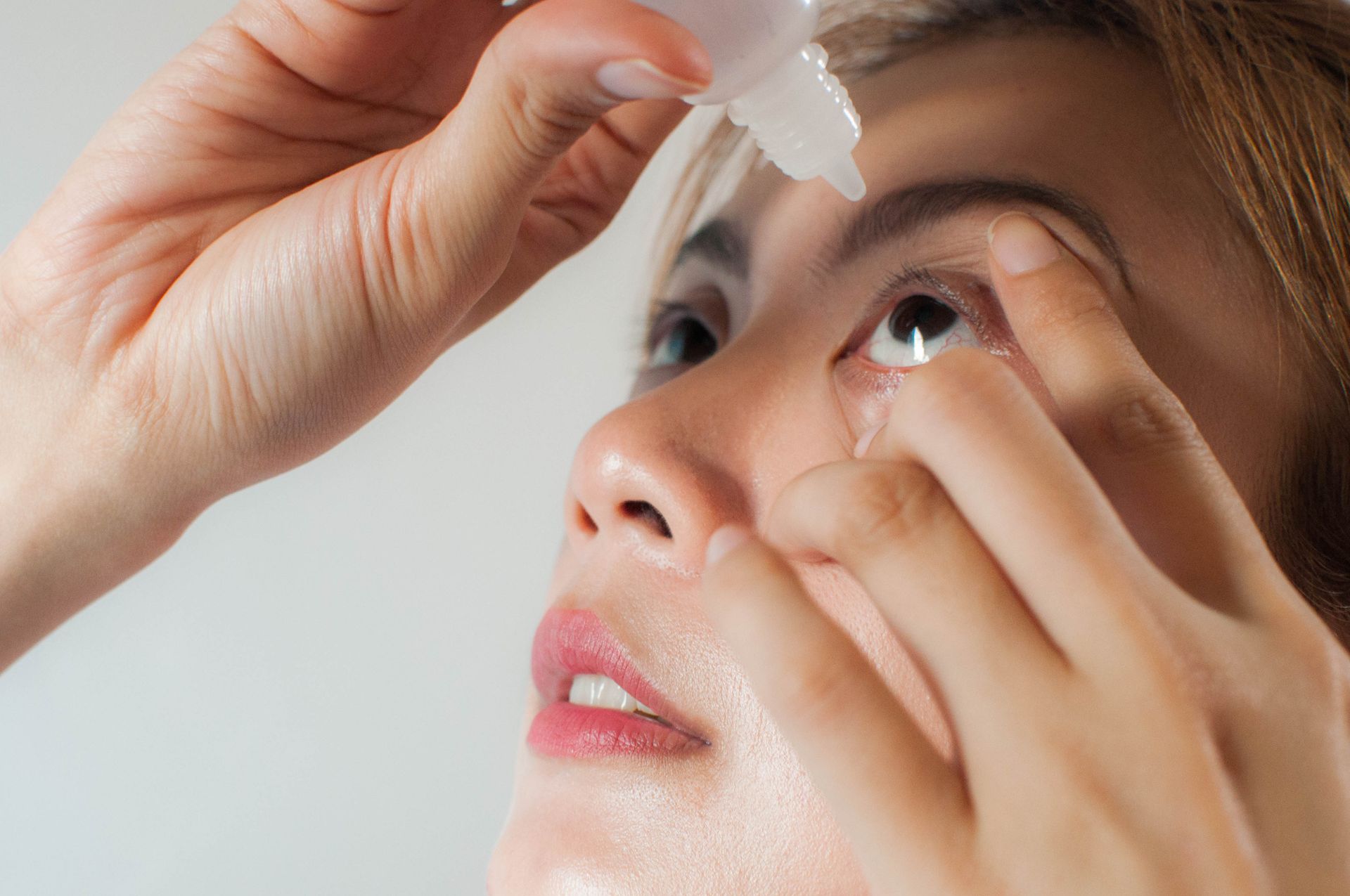It's not uncommon for your eyesight to diminish a little as you age. However, there are many habits you can be doing that may worsen your eyesight more than normal. If you want to better protect your eyes, check out these three common mistakes that may be affecting your eyesight.
For many people, a large portion of their life consists of staring at screens. You may spend all day at work, staring at your computer screen only to come home and stare at your tablet, cellphone, and/or TV the rest of the night. Ideally, when possible, take a break from staring at screens to give your eyes a rest. Of course, if your job relies on a computer, you can't really take many breaks.
Luckily, there are tips you can follow to help reduce your eye strain when using screens. First, avoid staring at bright screens in the dark. The contrasting light can put extra strain on your eyes. Second, make sure you blink a lot, especially if you are reading on a screen. This will help reduce dryness without the use of over-the-counter eye drops.
While many people love a bright screen because it is easy to see, having your screen too bright can also strain your eyes, especially when reading. You can also adjust the size of the text and icons on the computer, making them bigger if you have to strain or squint to see them.
If your eyes are sensitive to the sun, causing you to squint a lot, you probably never forget your sunglasses, but many people may not even notice the sun is irritating their eyes. When choosing your sunglasses, make sure you are getting ones with UV protection. The UV rays are what causes damage to both your skin and eyes, so find glasses that block 99 to 100 percent of UVA and UVB waves.
Too much UV exposure can lead to several complications, including cataracts. Cataracts are common, especially as you get older. There are many causes for cataracts, but about 20 percent of cataract cases are caused by too much UV exposure.
Macular degeneration is another potential complication. This condition causes your retina to deteriorate, which leads to reduced vision and/or total blindness. Unlike cataracts, which can be surgically removed, there is no cure for macular degeneration.
Rubbing your eyes frequently is never a good idea. At the very least, your fingers may pass bacteria or other organisms to the eye, causing infection. However, eye-rubbing can also affect your long-term vision. The repeated force and rubbing against the eye can actually cause the cornea to thin and become more coned-shaped (a condition known as keratoconus).
Without treatment, your vision will become distorted, and the only treatment for keratoconus is a corneal graft. If you already have an eye condition, rubbing the eyes too much may also worsen it. For example, if you suffer from glaucoma, rubbing your eyes puts more pressure on them, which may lead to nerve damage from reduced blood flow.
If you are rubbing your eyes too much because of strain, practice limiting screen time. If you rub your eyes because they are frequently dry, talk to your eye-doctor. Eye-drops may be beneficial, but using eye-drops too often can also negatively impact your eyes.
Your eyes are important, so take care of them as best you can. For the most part, protecting your eyes is about reducing strain. Taking a break from screens every now and then is one of the best things you can do to protect your eyes.
If you would like to know more about how you may be ruining your eyesight, or if you need to schedule an examination,
contact
us at Calvert Ophthalmology Center today.












